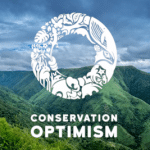Wondering what went right this week in the conservation world? We’ve got you covered with our Conservation Optimism Round-Up! We are collating stories of optimism from around the globe so that you never miss your dose of weekly motivation.
1. Tasmanian devil joeys mark success for breeding program on mainland Australia
” The birth of nine new Tasmanian devil joeys in regional New South Wales has spread excitement among conservation groups, who have been working hard to build the endangered species population on mainland Australia. “
The reintroduction of Tasmanian #Devils to mainland #Australia has resulted in more wild-born joeys than anticipated this year!#babyboom #tasmaniandevil #rewilding #recovery #wildlife #biodiversity #conservationoptimism #conservation #LetNatureThrivehttps://t.co/9n0X3B4YT4
— Global Conservation Solutions (@_GCS_) July 3, 2022
2. This National Meadows Day the UK Charity Plantlife is leading on restoring wildflower meadows in the UK
” Plantlife has created or restored almost 16,000 acres of wildflower meadows in the UK, and aims to restore over 120,000 hectares of species-rich grassland by 2043″
#ConservationOptimism > Meadows are making a comeback. This #NationalMeadowsDay join the movement turning landscapes from boring to blooming and beautiful https://t.co/qwBPYGIB0P pic.twitter.com/8QVU3kFHoy
— Plantlife (@Love_plants) July 2, 2022
3. ‘Beenome’ project aims to boost bee conservation with genetic mapping
” Scientists have announced a plan to map the genomes of at least 100 bee species, representing each of the major bee taxonomic groups in the U.S., to help them determine which bees are more vulnerable to climate change and pesticides. ”
‘Beenome’ project aims to boost bee conservation with genetic mapping. https://t.co/qZ6XtLgoT3 #conservationoptimism
— InternetOfElephants (@ioelephants) July 1, 2022
4. Europe’s largest vulture returns to Bulgaria’s wild Rhodope Mountains
” Cinereous vultures – Europe’s largest and heaviest raptor – have been brought back to Southern Bulgaria, with 17 birds from Spain having been transported all the way to the rewilding landscape of the Rhodope Mountains.”
Thanks to #restoration efforts in #Bulgaria, Cinereous #Vultures have been #reintroduced to the Rhodope #Mountains as part of a long-term #rewilding program!#birds #nature #wildlife #biodiversity #conservationoptimism #conservation #LetNatureThrive https://t.co/kbcbjvLSTU
— Global Conservation Solutions (@_GCS_) June 30, 2022
5. Big cats, big cities: how Los Angeles and Mumbai live cheek by jowl with feline locals
” The two megacities are the only ones in the world where large carnivores thrive as the urban areas have encroached on natural habitats “
Big cats, big cities: how Los Angeles and Mumbai live cheek by jowl with feline locals https://t.co/qQJCMH1V5D
— Guardian Environment (@guardianeco) July 1, 2022
6. Seaweed Offers Solutions for Humans, Habitats, and Hair in Belize
” Discover how seaweed is bringing a Belizean community together to explore its potential, from sustaining their local environment and economy to helping them take care of their hair! “
In Belize, the fledgling seaweed aquaculture industry has the potential to act as a source of #EarthOptimism – and natural hair care products! Learn more in this two-part series from one of our participants in #2022Folklife, Jolie Pollard of @ikoomahair: https://t.co/64j6fntM9z
— Earth Optimism (@EarthOptimism) June 28, 2022
7. Hidden underwater world: huge seagrass bed discovered in Cornwall could help tackle climate change
” Using cutting-edge surveying techniques scientists from Ecospan discovered a new seagrass bed in Mounts Bay covering the equivalent of nearly 300 rugby pitches and spanning 5km, all hidden beneath the water. The bed is larger than all known seagrass beds in Cornwall combined and equates to 3.4 per cent of known seagrass areas nationally, representing one of the largest beds ever found in the country. “
#ConservationOptimism https://t.co/phDoWiHkf5
— Mel dawson (@Meldawson6) June 28, 2022
Have a story to share for our weekly round-up? Use #ConservationOptimism on Twitter, Facebook, LinkedIn and Instagram!


